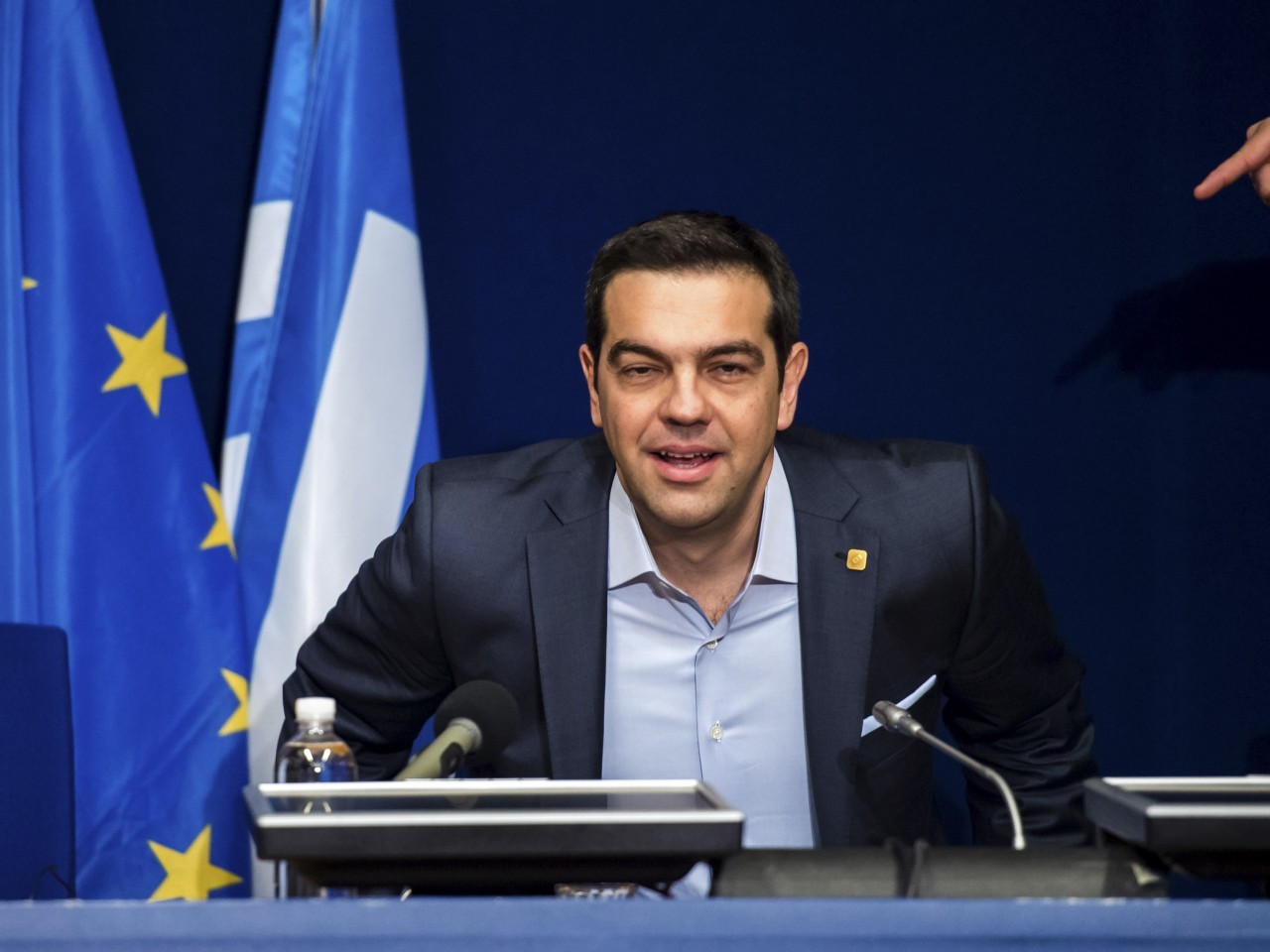Greek shares fall after latest EU talks break down
Published on 15 june 2015Athens' benchmark ATG index, which fell 5.9% on Friday, was down 5.3% in trading on Monday.
A European Commission spokesman said while progress was made at Sunday's talks "significant gaps" remained.
Europe wants Greece to make spending cuts worth €2bn (£1.44bn), to secure a deal that will unlock bailout funds.
Greek bank stocks were hit hardest on Monday morning with Athens' Stock Exchange FTSE Banks Index falling 10%.
Greece's Attica Bank shares fell 12% and Bank of Piraeus shares plunged 15%.
More widely shares across Europe were lower on heightened fears of a default and messy Greek exit from the eurozone in just over two weeks' time.
Greece must repay more than €1.5bn of loans to the International Monetary Fund (IMF) at the end of the month and promise further economic reforms to receive around €7bn bailout funds, which have been delayed by three months amid growing fears the government has run out of money altogether.
Sticking points between Greece and the IMF and EU remain reforms to VAT, pensions and a primary budget surplus target for this year and next year.
'Ready'
Talks were reported to have broken up after just 45 minutes on Sunday.
Greek deputy prime minister Yannis Dragasakis said that Athens was still ready to negotiate with its lenders.
He said Greek government proposals submitted on Sunday had fully covered the fiscal deficit as demanded.
But on Monday Greek Prime Minister Alexis Tsipras warned Athens would stand its ground until its creditors become "realistic".
"We will wait patiently until the institutions become more realistic," Mr Tsipras wrote in Greek national newspaper Ephimarida ton Syndakton adding that "political opportunism" was driving the creditors to keep pressing Athens to make cuts to pensions.
He called on the IMF and EU to "meditate" on the idea that: "We are not only the heirs of a long history of struggle. We are also carrying on our shoulders the dignity of a people, and the hope of the peoples of Europe."
'Tough'
Meanwhile on Monday, the president of Germany's central bank Jens Weidmann, warned Greece "time was running out" adding that it was now clearly up to the government in Athens to act.
IMF chief economist Olivier Blanchard said in a blog post that an agreement will require "difficult decisions", with "tough choices and tough commitments to be made on both sides".
Eurozone finance ministers will discuss Greece when they meet on Thursday. The gathering is regarded as Greece's last chance to strike a deal.
The Commission spokesman said: "President [Jean-Claude] Juncker remains convinced that with stronger reform efforts on the Greek side and political will on all sides, a solution can still be found before the end of the month."
Source: BBC NEWS


